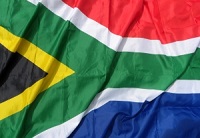Living in South Africa can be an exciting and vibrant experience. It is true that crime is a problem in the country, but often this is sensationalized by the media. A closer look at many of its major cities will show that the culture and lifestyle is in fact cosmopolitan and welcoming. There are however many cultural variations on account of South Africa’s complex history, and this societal diversity can cause something of a culture shock to those who are not prepared.
Many of South Africa’s customs have come from the native tribes and European colonists. Due to the English colonization, customs of social etiquette such as a handshake or a more affectionate hug and kiss between people are evident in many parts of the country.The descendants of South Africa’s original tribes practice more distinct traditions, which may seem unusual to foreigners. Expats can avoid culture shock and prepare for life in South Africa by getting to know some of these observances. Here are five cultural customs you may have not known about before.
Qhumbuza
This is the ear piercing ritual practiced among the Zulu people. The Zulu are the largest ethnic community in South Africa. Their population is about 9 million and majority of them live in the KwaZulu-Natal Province. Some of their customs have been in the community for decades and Qhumbuza is one such custom. Qhumbuza means to be ‘reminded’ or ‘be called’ and it is done on children, after which they are considered to be ‘awake’ and responsible for their actions and the consequences. After piercing the ear, the wound is plugged with a piece of reed and larger plugs are progressively inserted as the holes enlarge. This is done until they reach the desired size. Wood or ivory plugs may also be used.
Ukwaluka
This circumcision ritual is practiced among the Xhosa speaking people. It is a sacred rite that marks the point in a boy child’s life when he is considered to have become a man. The custom dictates that prior to the ritual, boys are considered to be ‘things’ or ‘dogs’ and are only seen as people once the ritual is complete. The boys are not allowed to display any signs of pain. There has been some evolution in this practice and today many perform the ritual using sterile surgical blades instead of traditional daggers.
Iphotho
Iphotho are the aprons worn by the women of the Ndebele tribe. The Ndebele people, women in particular, are known to be artistic and the womenfolk of the family start training girls at the beginning of puberty. The aprons are the main feature of the traditional dress and are made of beads and tassels. When the girls reach marriageable age, they start to wear larger aprons made of hardened skins. The intricate decoration of beadwork takes the form of geometric designs, which is indicative of the woman’s age group, if she is a mother or is expecting a child.
Campfire of the San people
The San people, also called Bushmen, are the oldest inhabitants of Southern Africa. They have a unique practice that revolves around the campfire. Each campfire is seen as a separate social gathering. Even though the campfires are located close to each other, a person visiting a different campfire is greeted formally. Also the conversations around each campfire are kept private and do not extend to the people sitting around other campfires. In fact, it is considered impolite to talk to someone sitting at another campfire.
Rusks and biltong
Afrikaners are the descendants of the Dutch settlers that came to the country during the seventeenth and eighteenth centuries. Rusks are dried biscuits and biltong is dried meat. The practice of eating these foods dates back to the time of the Great Trek of the Dutch and British settlers, when they had to take food that would last for days without getting spoilt. So the only option was to dry the bread and salt the meat to preserve it. Rusks are a popular food even today and are had with tea or coffee. Some other foods that have their origins during the Great Trek include Koeksisters and Milk Tart.

